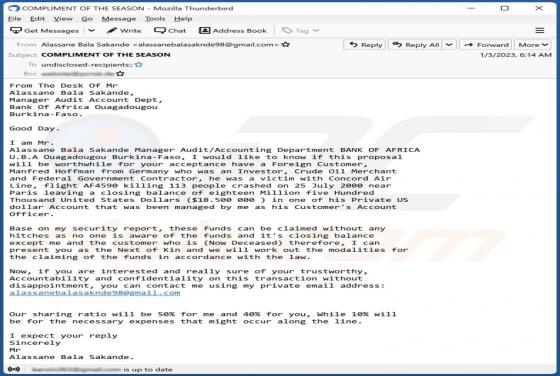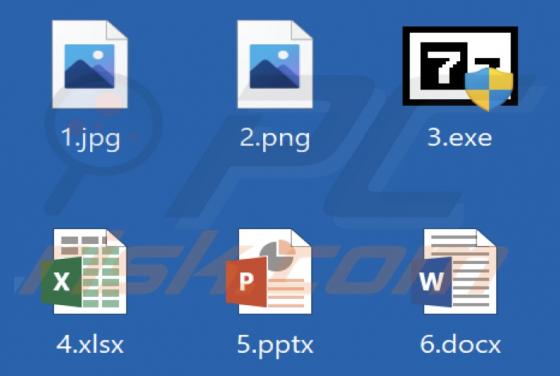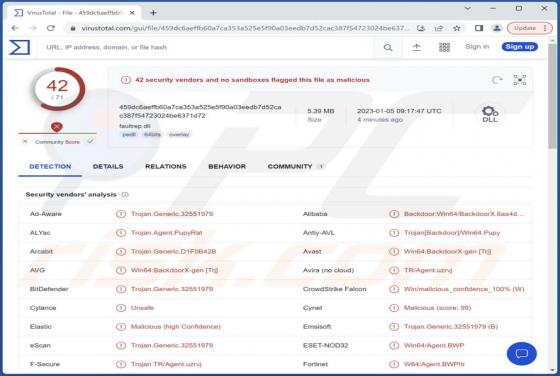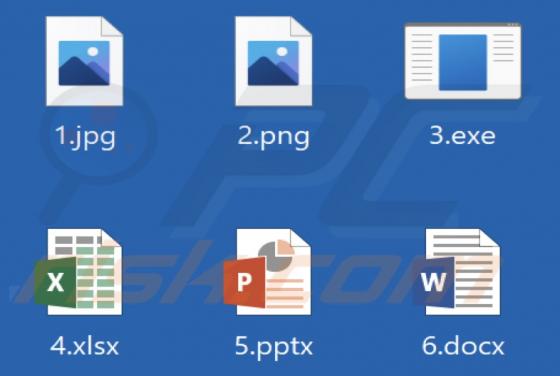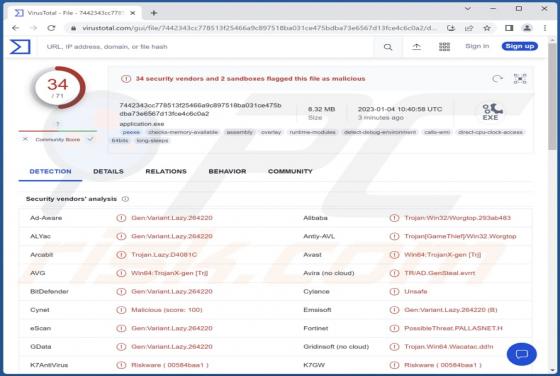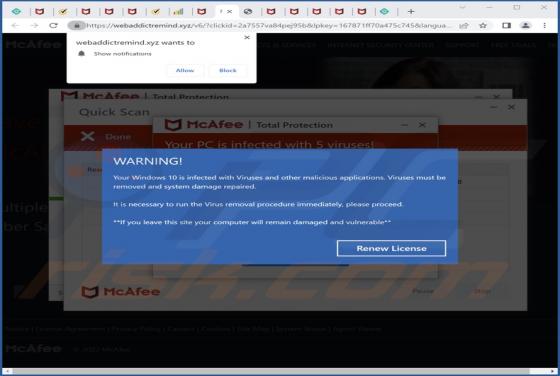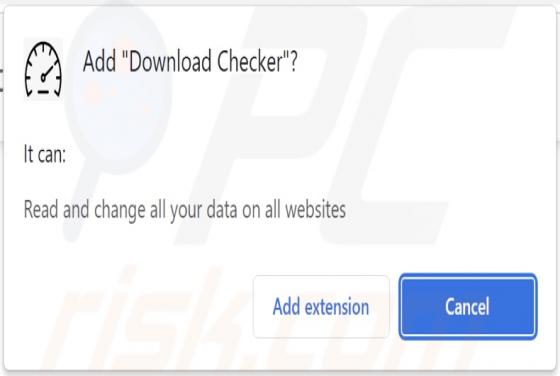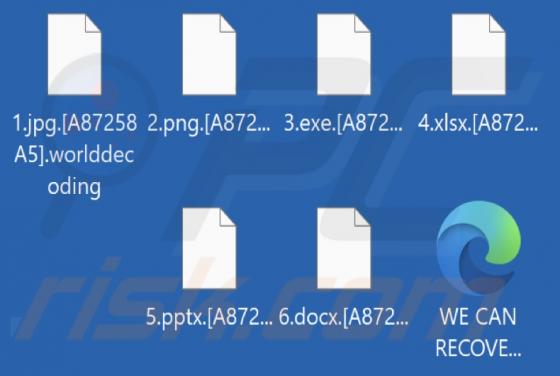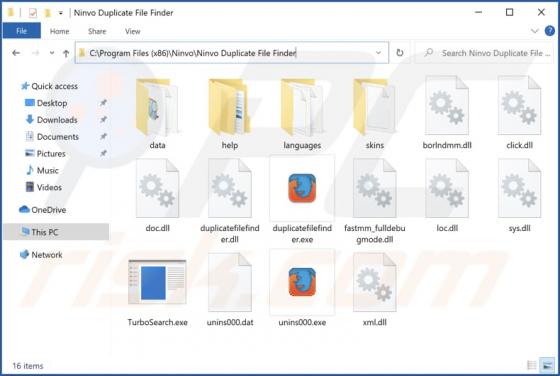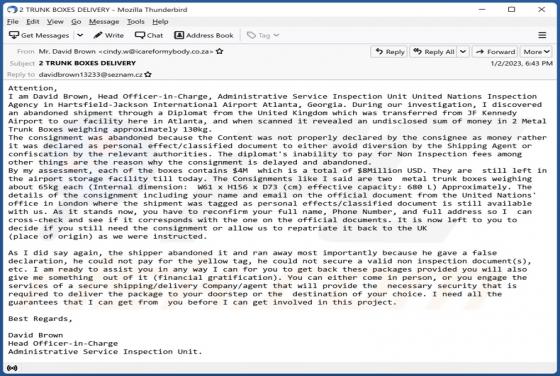
United Nations - Abandoned Shipment Email Scam
After inspecting the "United Nations - Abandoned Shipment" email, we determined that it is spam. The letter is supposedly from a "Head Officer in Charge" and claims that a consignment intended for the recipient failed to reach them due to improper documentation and unpaid fees. The shipment consis
